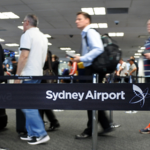New Zealand Customs Can Now Require Your Passwords

New Zealand is reported to have become the first country in the world to pass laws requiring travellers to reveal their personal passwords to electronic devices such as phones and computers at the border, and Australia is likely follow in the near future.
It’s been in force for just a week, but travellers to our eastern neighbour say they are angry at the requirement to hand over their passwords upon request on arrival.
“Digital strip searches”
The nation’s Customs and Excise Act 2018 allows customs officials to demand passwords, PINs and encryption keys to unlock devices for what have been labelled as “digital strip searches”.
Travellers who refuse will be liable for fines of up to $NZ 5,000 (about $4,800 Australian dollars) and may have their devices confiscated.
The law applies to anyone entering the country, whether they are foreign visitors or locals.
Previously, customs officials had the authority to stop anyone at the border and demand to see their devices but, until now, they could not force people provide their passwords.
Officials must have a “reasonable cause to suspect” a device or its owner of an offence to warrant the digital search, and data may be copied and reviewed.
Customs spokesman Terry Brown said officials won’t be able to access information stored in a cloud server.
Searches about to become more common
New Zealand border officials carried out around 530 preliminary searches of devices last year, and that number is expected to rise as a result of the new powers.
Mr Brown has defended the “the shift from paper-based systems to electronic systems” on the basis that “the majority of prohibited material and documents are now stored electronically.”
Invasion of privacy
But travellers have taken to social media over the past week to vent their outrage, with some saying they have taken New Zealand off their bucket list, or will never return to the country.
Meanwhile, the chairman of the New Zealand Council for Civil Liberties, Thomas Beagle, has called the laws a “grave invasion of personal privacy of both the person who owns the device and the people they have communicated with”.
“Modern smartphones contain a large amount of highly sensitive private information including emails, letters, medical records, personal photos, and very personal photos,” Mr Beagle told the media.
“The reality of this law is that it gives Customs the power to take and force the unlock of people’s smartphones without justification or appeal.”
Australia to follow suit
Here, Australian Border Force (ABF) officers currently have the power under the Customs Act 1901 to examine electronic devices, confiscate them for up to 14 days (or longer if there is a formal seizure) and make copies of the contents – at the owner’s expense.
Many people were unaware of this until the plight of a British traveller was recently aired on social media.
Now, two bills recently introduced into Parliament by home affairs minister Peter Dutton propose to give ABF officers and even greater powers, including the power to require the disclosure of passwords.
The Assistance and Access Bill seeks to amend the Customs Act to enable ABF officers to request a warrant from a judge, forcing individuals to provide access to their electronic devices in any location.
It also seeks to increase the maximum penalties for refusing to comply with orders from two years to five years for a simple offence, or ten years where a ‘serious crime’ is suspected.
Demanding identification
A second bill proposes to give police the power to demand identification at airports, without any ‘reasonable suspicion’ of wrongdoing. The laws would also give police the power to force people to leave the airport when requested, and ban them from boarding flights.
Police would further be empowered to issue ‘move on’ directions to anyone they think is an ‘imminent security threat’, and ban them from entering any airport for 24 hours.
Anyone who refuses could be arrested and face fines of up to $4,200.
Under the same law, those found to have provided misleading information would face a maximum penalty of 12 months in prison, and anyone found to obstruct a Commonwealth official would face up to 2 years.
The Australian Government continues to introduce laws which remove personal liberties, including our privacy, all under the guise of greater security.
And while MPs from minor parties such as the Greens continue to speak against these laws, they are generally passed with bipartisan support from our major political parties.








